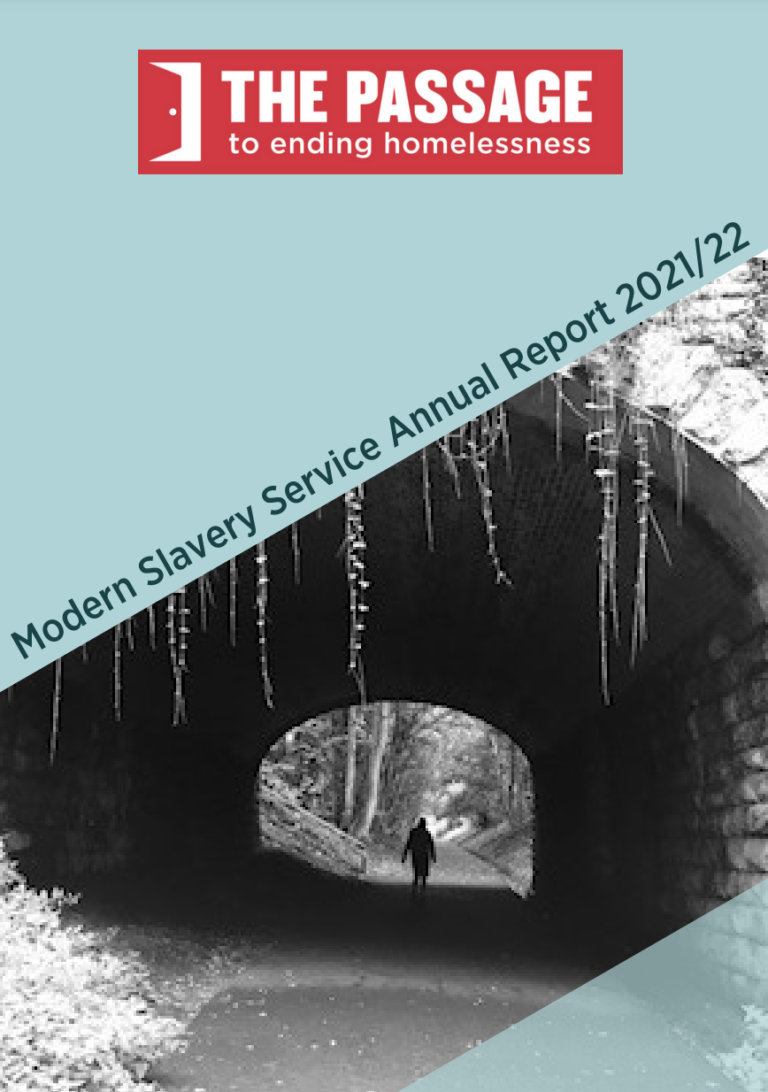The majority of support is provided before people enter the National Referral Mechanism. The pre-NRM support includes emergency accommodation, addressing primary needs, signposting to a First Responder, formal referral to the NRM, referrals to health and mental health services and referral to legal aid). On the occasions where The Passage supports people while they are in the NRM, our focus is on advocacy and welfare checks and upon leaving the NRM, The passage offers support to find housing, employment and education.
When a potential victim is identified whilst they are rough sleeping, The Passage offers an immediate route off the streets and the person is given some time to make decisions. The Passage is there to provide support to make an informed decision to enter the NRM and receive government support; however, if they chose not to enter the NRM, The Passage will continue to provide a range of services that includes housing, mental health support, reconnection or assisted voluntary return.
The partnerships in place with Westminster City Council (WCC) are essential to the sustainability of the service. Working in close collaboration with the Council has proved to be fruitful regarding opportunities to prevent modern slavery and homelessness alongside protection of survivors. The Service also started a pilot project in Camden to map and understand the needs of a Modern Slavery Service in that borough. To achieve this, a Joint Working Protocol was signed in October 2021 to begin the piece of work.
In addition, The Passage is working with partners across the voluntary sector and central government to look at systemic change. This work, in partnership with Crisis, has focused on exploring changes to data recording systems, producing a good practice toolkit, advocating for pre-NRM accommodation, and promoting a multi-agency approach when assisting potential victims of modern slavery, based on the success of our successful MultiAgency Case Conference model.

